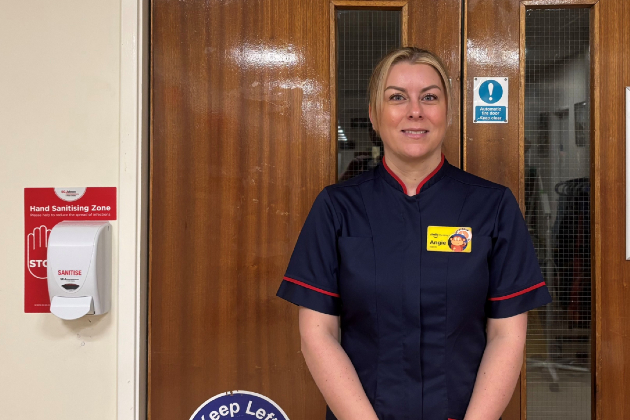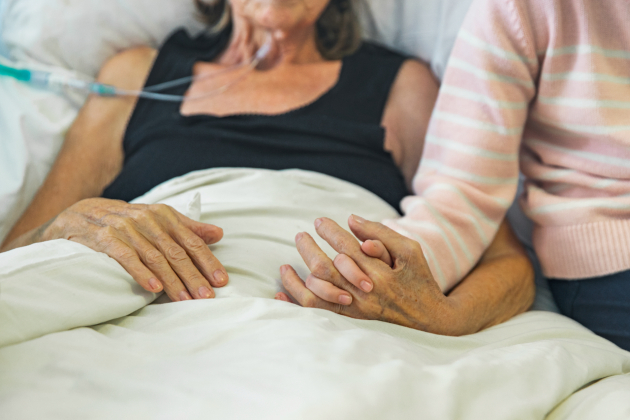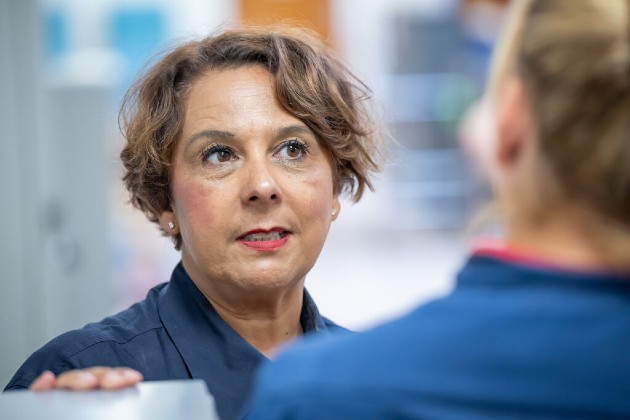As someone who’s come into nursing as a mature student from a different profession, it’s shocked me just how many single use items are used in health care, and how much plastic waste is created.
Did you know if health care was a country, it would be the fifth largest CO2 emitter on the planet?
The Greener Anaesthesia and Sustainability Project highlights a paper published by Healthcare Without Harm which measured the carbon footprint of health systems globally in 2019 and found that – not including anaesthetic gases – health care contributed to 4.4% of global emissions.
That’s the equivalent to the annual greenhouse gas production of 514 coal fired power stations.
Infection prevention is vital, even more so since the pandemic. But we also need to be mindful of planetary health and the impact health care has on the environment.
Thankfully, the NHS has pledged to have a net zero carbon footprint by 2040. This Is very positive. But what can be done to help make that a reality?
There are many everyday ways we can reduce our impact on the environment
Reducing glove use is one way. The RCN’s annual Glove Awareness Week highlights one simple way we can all make a change. Gloves can, of course, be a vital piece of PPE but for certain tasks, hand hygiene can be just as effective. For example, gloves are most often not needed to:
- give vaccinations
- feed people
- enter a home
- give IV medication
- comfort people.
A range of RCN resources are available on this and there’s an RCN magazines article containing useful information.
Alongside reducing glove use, there are many every day ways we can reduce our impact on the environment. This could by making small changes as an individual, encouraging sustainability while on placement, and by being a green activist.
Steps to help make a positive change
I’ve developed more environmentally friendly habits over time. Here's a few suggestions you might want to try to get started:
- use blocks of soap to wash instead of plastic bottles of shower gel (I use simple soap bars. I really want to love shampoo bars but haven’t found one that works well for me yet!)
- use refillable household cleaners and reuse the bottle
- buy toilet roll and kitchen roll that is wrapped in paper not plastic
- consider your meat and dairy consumption – look at increasing vegetables or moving to a plant-based diet
- take reusable bags to the supermarket
- walk/cycle/car share when possible
- use reusable sanitary products
- recycle everything that’s recyclable
- think before using gloves – are they really needed?
- grow herbs or fruit and vegetables at home or on the kitchen windowsill
- plan meals to avoid food waste
- avoid fast fashion, buying second hand or sustainable clothing when possible
- discuss sustainability and share research
- recycle old clothing or take to charity shops
- do you really need that in print? Consider opting for online publications: rcn.org.uk/go-digital
Personally, my next change is to buy less clothing and when I do buy clothes to make sure I go for sustainable or second-hand items. What ways to be more environmentally friendly have you found?
Be inspired
Sharing innovations is another small but significant way to make a difference. Recently I was fascinated to hear about the work Royal Cornwall Hospitals (RHCT) NHS trust has been doing around sustainably recycling surgical masks.
RCHT Care Group General Manager Roz Davies working together with Thermal Compaction Group, helps to ensure that the masks are separated from other waste.
They’re then melted and turned into blocks that are recycled into other products including bottles, bins and toolboxes.
Everything affects everything
The more information I have, the more I believe planetary health and individual health are linked.
The better we eat, the healthier we are, the less we need the NHS, the less energy used by the NHS, the healthier the planet, the healthier we are… and it goes round. But this also highlights that health inequality is a huge issue for sustainability.
We need systemic change – not just in the UK, but globally, and for all health care professionals to work together. I believe as future nurses we can be a voice for change and have a vital role to play in a more sustainable world going forward.
Sustainability in everyday practice
The RCN Students Committee ran an event at RCN Congress 2022 looking at how sustainability can be built into everyday practice.








